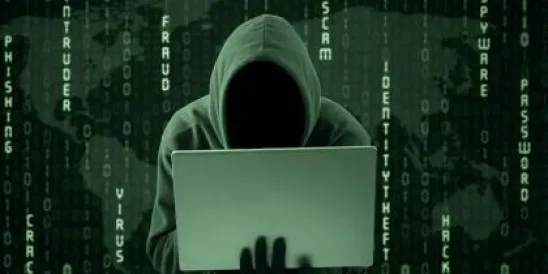Most business owners are all too familiar with identity theft. What they might not be sufficiently aware of is the “Dark Web” where identity theft thieves buy and sell stolen personal information.
The Dark Web Defined
The Dark Web describes places on the internet not identified by traditional search engines. Although not all sites on the Dark Web engage in criminal activity, it is generally where illegal consumer data is bought and sold. For identity thieves, the Dark Web is a virtual market place that can provide a safe haven for cyber criminals to barter their goods, whether it’s stolen account information, stolen credentials, stolen documents or other personal information.
What Is the Connection between the Dark Web and Small Business?
Generally, personal data stolen from businesses ends up on the Dark Web. There is a myriad of categories within the Dark Web that specialize in different stolen information such as stolen credit cards, stolen account information from financial institutions, forged documents, etc. Many times there are even subcategories within these general categories such as a specific brand of credit cards within a specific geographic location by state and zip code. Surprisingly, some of these Dark Web businesses will not only sell stolen information such as bank cards, but will also offer “customer service” functions such as card support or refunds. The Dark Web also offers compromised bank accounts, health records, credentials and forged real estate documents. Interestingly, a “one-stop shop” is available on the Dark Web that offers entire “wallets” complete with driver’s license, social security numbers, birth certificates and credit cards.
How Is Stolen Information Utilized?
There is no real limitation for the creative criminal mind on what purposes stolen information can serve. Generally, it can include obtaining credit, mortgages, loans, tax refunds, etc. In addition, it can be used to create a “synthetic identity” where both real and fictitious information is lumped together to suddenly create a new identity that is difficult to discover.
Stolen Credentials
A growing area of criminal activity on the Dark Web is the use of stolen credentials such as user names and passwords. To profit from this type of information, many times identity thieves hire “account checkers” who input stolen user names and passwords across various business accounts, including banking, and eCommerce and attempt to “break in” to the account, as many people use the same user name and passwords for various business services. Suddenly, a stolen user name and password from one credit card, can suddenly be used to open up a variety of accounts across financial and business-related horizons.
Small Business Impact from Dark Web
The media generally focuses on data breaches for large companies that possess information on millions of consumers. Consequently, many small business mistakenly may conclude that they would not be a prime target of identity thieves. Small business owners should know that thieves generally don’t target the size of the business, only those that are most vulnerable. As privacy specialists noted at a recent Federal Trade Commission (FTC) conference, information available for sale on the Dark Web is up to twenty times more likely to come from a company whose breach wasn’t reported in the media. Unfortunately, many of these are small retailers, restaurant chains, practices, school districts, medical practices etc, as emphasized at the FTC conference, whereby it was announced that the majority of breaches investigated by the U.S. Secret Service involve small business. (The full FTC conference on identity theft is available for viewing under the video tab here.)
Reducing Risk for Your Small Business
Obviously, it starts and ends with adequate security protections and the commitment to consistently utilize proper security protocols. The FTC has a data security page that identifies security options for a business of any size and sector. In addition, the House of Representatives recently held a hearing to discuss cybersecurity risks for small businesses and various solutions. In particular it was suggested that increased sharing of cyberthreat data could enhance the security of all industries, supported by Committee Chairman Steven Chabot’s recently introduced Small Business Cybersecurity Enhancement Act (H.R. 4668) which would create a government-led cyberthreat sharing information program. For more information on small businesses and cybersecurity, see our article Data Breach Preparedness: A critical risk management for small and mid-sized business. The bottom line is that small businesses are particularly at risk for identity theft and need to act promptly and aggressively to minimize their legal and monetary exposure.




 />i
/>i
